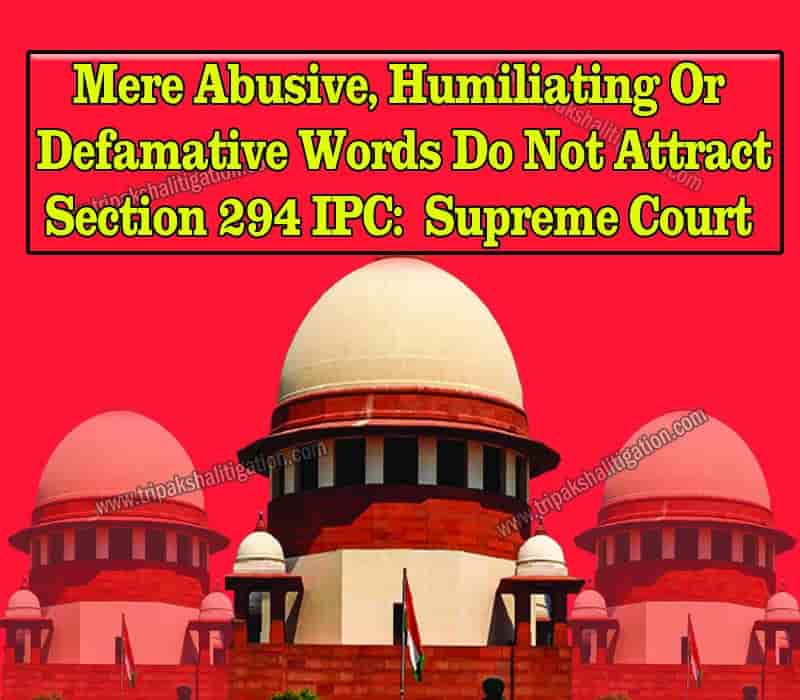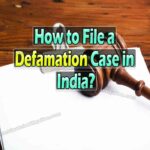Defamation: Meaning
Defamation essentially refers to a derogatory statement, which is generally false in nature and can harm reputation of a person. Such statement can be either in a written form or spoken, and aim towards decreasing a person’s respect or creating a hostile opinion against the person in the eyes of public. Since a man’s reputation is considered his well-owned property such statement cause direct harm to a man’s property, which is his most valuable asset.
Defamation under Criminal Law can be done through words, signs or by visible representations. It can be in the form of written content or verbal form that hampers the reputation of a person or a class of persons. The intention is to harm the reputation of the person with knowledge that it would cause him harm or tarnish his image in the society or before a group of persons.
Essentials of the offence
There are certain points which are necessary for a person to succeed in a defamation suit. First is the statement should be defamatory in nature and directed towards a person whereby injuring his reputation, or exposing them to hatred. Secondly, the concerned statement should be false in nature and made on purpose specifying towards a single person or a community. Lastly, it should be available in the public domain or at least to a third party, which brings change in his thinking or affects his behavior or mindset, the statement may be available in written or oral form, it is of no concern.
The law of defamation in India has a direct relation to the Constitution of India because it provides a set of freedoms which can be exercised by a citizen of India. Articles 19 (1) (a) and 19 (2) are the one we are concerned with here because they provide the right and reasonable restrictions on freedom of speech and expression. Thus, it can be said that Defamation law is the counter balance to the right of free speech and expression provided under the constitution.
Apart from the law, there is plethora of cases available in the context of defamation, which try and set a limit to the freedom extended to citizens of India.In the matter of SubramaniamSwamy v. Union of India, where the petitioner had argued that defamation is just another tool to bind a person from expressing himself in the public, but the court held to the contrary considering that right to speech and expression doesn’t necessarily gives right to one person to defame another.
In the case of Queen v. Hicklin, [L.R.] 3 Q.B. 360 at 371 Cockburn C.J. Laid down the test of ‘obscenity’ in these words: “The test of obscenity is this, whether the tendency of the matter charged as obscenity is to deprave and corrupt those whose minds are open to such immoral influences” this test has been uniformly followed in India.
The Supreme Court of India has also accepted the correctness of the test in the case of Ranjit D. Udeshi v. State of Maharashtra, AIR 1965 SC 881.
In another case of Samuel Roth v. U.S.A., 354 US 476 (1957), Chief Justice Warren said that the test of ‘obscenity’ is the “substantial tendency to corrupt by arousing lustful desires”. Mr. Justice Harlan observed that in order to be ‘obscene’ the matter must “tend to sexually impure thoughts”.
M S Madhanagopal v. K Lalitha, 2022 LiveLaw (SC) 844: Case Analysis
Facts in brief
A woman lodged a complaint before a Judicial Magistrate against the accused under Sections 294(b) and 341 of the IPC. The accused filed a petition u/s 482 CrPC before the Madras High Court which got dismissed.
An appeal was made before the Apex Court and it noted that the complainant stated that the accused hurled unparliamentary words towards. It was stated by the Court that the test of obscenity u/s 294(b) of IPC is whether the tendency of the matter charged under the said provision as obscenity is to deprave those whose minds are open to such immoral influences.
Observations of the Court
The Apex Court in the instant case stated that it may be that the words are defamatory of the complainant, but the words may not be ‘obscene’ and the utterance of such words would not constitute an offence punishable under S. 294(b) IPC.
The Court noted that the absence of words which will involve some lascivious elements arousing sexual thoughts or feelings or words cannot attract the offence under Section 294(b). By analyzing the records the Court stated that it did not appear that the alleged words were used by the accused. It may not be the requirement of law to reproduce in all cases the entire obscene words if it is lengthy, but in the instant case, there is hardly anything on record.
Decision of the Court
The Court held that “Mere abusive, humiliating or defamative words by itself cannot attract an offence under Section 294(b) IPC”. It added that to prove the offence under Section 294 of IPC mere utterance of obscene words are not sufficient but there must be a further proof to establish that it was to the annoyance of others, which is lacking in the case. No one has spoken about the obscene words, they felt annoyed and in the absence of legal evidence to show that the words uttered by the appellants accused annoyed others, it cannot be said that the ingredients of the offence under Section 294 (b) of IPC is made out.
The Court further stated that taking cognizance of an offence under Section 190(1) of the Cr.P.C. and issue of process under Section 204 are judicial functions and require a judicious approach. This is a proposition not only based on sound logic but is also based on fundamental principles of justice, as a person against whom no offence is disclosed cannot be put to any harassment by the issue of process.
Issuance of process must be preceded by an application of judicial mind to the material before the court to determine if there is ground for proceedings against the accused. When the allegations made in the complaint are found to be too vague and general without giving any material particulars of the offence alleged against the accused then the order of the Magistrate issuing process on the basis of the complaint would not be justified as there must be material prima facie, for issuance of process.
The Court did not consider the instant case to be fit for charging the alleged accused for the offence of defamation based on the Court observations mentioned above.
Conclusion
The courts play a major role in these silent concepts of defamation, where the judges have to very carefully analyze the matter as per facts and consciously apply the law to that a precedent can be laid down. But it is still a long lost debate as to what qualifies as defamation and what not, because this phenomenon varies from case to case due to difference in facts.
You may contact me for consultation or advice by visiting Contact Us and Call us








